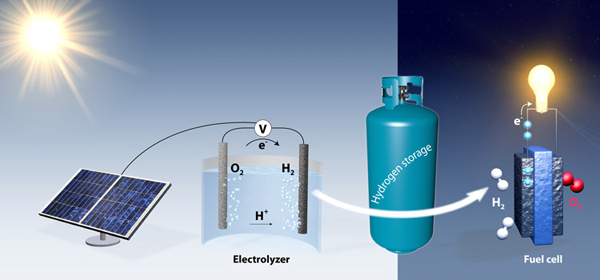
Breaking News
 Canada's MAID CULTURE OF DEATH Just Hit Rock Bottom: KILLING PRISONERS NOW!!!
Canada's MAID CULTURE OF DEATH Just Hit Rock Bottom: KILLING PRISONERS NOW!!!
 Weight gain single-handedly prevented by a gut microbe
Weight gain single-handedly prevented by a gut microbe
 Doug Casey on 2025's Defining Events and What Comes Next
Doug Casey on 2025's Defining Events and What Comes Next
 BREAKING: Officer Tatum & Other Investigators Believe A Potential Suspect In The Brown...
BREAKING: Officer Tatum & Other Investigators Believe A Potential Suspect In The Brown...
Top Tech News
 This tiny dev board is packed with features for ambitious makers
This tiny dev board is packed with features for ambitious makers
 Scientists Discover Gel to Regrow Tooth Enamel
Scientists Discover Gel to Regrow Tooth Enamel
 Vitamin C and Dandelion Root Killing Cancer Cells -- as Former CDC Director Calls for COVID-19...
Vitamin C and Dandelion Root Killing Cancer Cells -- as Former CDC Director Calls for COVID-19...
 Galactic Brain: US firm plans space-based data centers, power grid to challenge China
Galactic Brain: US firm plans space-based data centers, power grid to challenge China
 A microbial cleanup for glyphosate just earned a patent. Here's why that matters
A microbial cleanup for glyphosate just earned a patent. Here's why that matters
 Japan Breaks Internet Speed Record with 5 Million Times Faster Data Transfer
Japan Breaks Internet Speed Record with 5 Million Times Faster Data Transfer
 Advanced Propulsion Resources Part 1 of 2
Advanced Propulsion Resources Part 1 of 2
 PulsarFusion a forward-thinking UK aerospace company, is pushing the boundaries of space travel...
PulsarFusion a forward-thinking UK aerospace company, is pushing the boundaries of space travel...
 Dinky little laser box throws big-screen entertainment from inches away
Dinky little laser box throws big-screen entertainment from inches away
 'World's first' sodium-ion flashlight shines bright even at -40 ºF
'World's first' sodium-ion flashlight shines bright even at -40 ºF
Water good idea: Solar-powered home stores energy as hydrogen

A new development in Chiang Mai, Thailand, reportedly solves these problems. It converts excess power to hydrogen and stores it for use later.
There are four family homes in the Phi Suea House development, as well as several other purpose-built buildings. According to project developer CNX Construction, the homes will be the first in the world to run on solar-powered hydrogen storage.
To achieve this, there will eventually be 114 kW of photovoltaic panels generating around 441 kWh of electricity a day, a partial excess of which will be stored in two 2,000-Ah lead-acid battery banks. Electrolyzers will then convert additional excess power into hydrogen gas by applying an electrical current to water. The hydrogen will then be stored until it is needed, typically at night, at which point it will be changed back into electricity via fuel cells.



